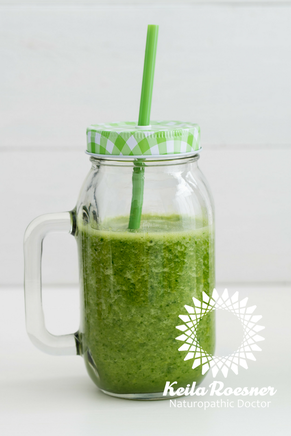 Every spring and fall, I get clients asking me about doing some kind of “I need to cleanse but not the kind where you run to the bathroom all the time” because they are feeling the effects of over-eating and over-scheduling. I always get a chuckle out of that. It’s hard to spend any time online without coming across some celebrity’s secret weight loss plan or miracle 48 hour juice program to drop 3 dress sizes before the weekend. Most of it is crap. After enough time spent reading headlines in the grocery store line, it’s easy to think that doing one of these is either essential or something to be avoided at all times because we saw a news thing on it once and it didn’t work. Never any in between. But what if you are not feeling so great, want to re-set but don’t want to get caught up in hype or do something dangerous? It’s crucial to know the difference. A cleanse usually describes a short term program where foods are restricted and fluids are encouraged. For example, there is the Master Cleanse which involves fasting apart from lemon juice, maple syrup and cayenne. It also involves diarrhea. Other versions might include only fresh-pressed juices or water or broth. The general idea is to give your digestive system a break to flush out the digestive system. We target the large intestine in particular so there is often a focus on having bowel movements. Lots of them. A detox program typically focuses on helping the body to process things more efficiently while putting less garbage in. This might include staying away from problematic-at-times foods like wheat, dairy, alcohol and caffeine while increasing healthier foods like greens, fresh lemons and lean proteins. Herbal supplements are often used in addition to help the body get things going. This typically will involve helping the liver, kidneys, intestines, lungs and skin to work more efficiently. There is often a focus on resting, and gentle exercise. So which one is better? It depends on what you’re looking for! As a Naturopathic Doctor, I tend to be pretty wary of cleanses, particularly if they are not supervised medically. That being said, there is some pretty good evidence out for therapeutic fasting with some conditions. Juices can equal a lot of sugar and may actually stress the liver and contribute to blood sugar issues. And again, diarrhea isn’t fun. Detoxes are not all created equal either. "Detox herbs", and products picked up off health food store shelves can be helpful for some people and make others feel awful. I often think this is due mainly to not eating crap food for a period of time. Sometimes herbs can be a big help but again, this totally depends on your health, any medications you are taking and how stressed out you are. I am generally in favor of giving the body a break periodically by eating well, resting and moving. The specifics are highly dependent on your goals. In my next blog, we will talk about how to start with a good detox and when you should do one. If you are looking to re-set and would like a program tailored to YOU, let's talk. In health,
1 Comment
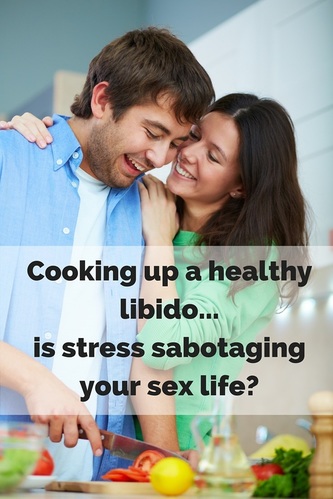 If you’re going to cook up a satisfying sex life, you need the right high quality ingredients, in the right amounts... and hold the stress. Likewise, when our body produces our main sex hormones, testosterone, estrogen and progesterone, we need some basic ingredients available in the kitchen, which in this case is our liver, ovaries (testes in men) and adrenal glands. We need enough of all of these in order to have a healthy libido and enjoy sex. And sex is a great way to relieve stress. Cholesterol is the main building block of many hormones, including our sex hormones and the stress hormone, cortisol. When we restrict fat, our body will upregulate the production of cholesterol by the liver to ensure that you have the raw materials available. During production, cholesterol is modified several times. Eventually, the raw materials come to a fork in the road, where the body can either continue on to manufacture our sex hormones, or switch over to making cortisol. Both of these directions are essential to a healthily functioning body and ideally, a balanced ratio is maintained. In our fast-paced, over-booked lives many of us produce excess cortisol in order to keep up. Cortisol, taking one path, competes for the same binding sites in the body as progesterone which is the precursor to our other sex hormones. Symptoms of excess cortisol include weight gain around the middle, feeling tired and wired, poor sleep, irregular menses, blood sugar dysfunction, muscle fatigue, poor stress response long term... and low sex drive (because who has the time to get it on with that huge to-do list?). Furthermore, we are likely to experience abnormal production of progesterone, estrogen and testosterone because the raw ingredients are not available in the right quantities. Just like trying to make a recipe when you are short on groceries, the end result can get interesting. Often, we will experience a combination of excess and deficient hormone levels which will typically affect our resistance to stress, metabolism, thyroid function, digestion and sexual function. Again, our libido can suffer. And just like learning to cook requires time spent cooking, when we are stressed, our libido tends to suffer yet having sex can be one of the best things you can do to relieve that stress! In order to balance these complex hormones, stress management is essential as is eating well and exercising. The goal is to have enough ingredients to produce these hormones in the right amounts, so that we have enough energy, healthy libidos and can age well. In other words, we need to have a clean, organized and well stocked kitchen, a good recipe and enough time to cook. Here's what you can do:
If you're suffering from low libido, a Naturopathic Doctor trained in the use of bioidentical hormones can help you to test your hormones and create an individualized treatment plan to ensure that you live a healthy, happy balanced life… and a great sex life. You can also check your hormone score to see if you might have some imbalances. Want to go further? Book your free 15 minute health strategy session to learn more about balancing your hormones (and improving your sex life).. naturally. In health, Dr. Keila 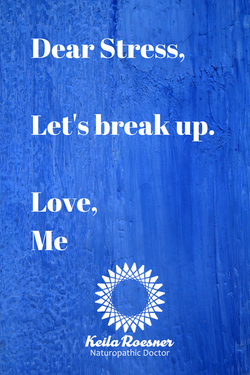 This week a regular patient of mine and I were chatting and she said: "But Keila, I don't have time to exercise, and take my vitamins, meditate, walk, stretch, journal or any of that stuff!". This also wasn't the first time I'd heard this phrase. Often, it's me saying it in my own head. Maybe you've got stuck in the "Busy" trap. It sounds something like, "So, what've you been up to?" "I've just been soo busy!". Newsflash: We're all busy! We're all stressed! This bouncing around from one activity to the next is exhausting. We end up eating on the run, not exercising, becoming sleep deprived and getting short with our loved ones. It is no big secret that stress is associated with insomnia, anxiety, depression, heart disease and even periodontal disease. Yet, we become addicted to that feeling of being indispensable, needed and useful. While the notion of "self-care" may seem self-indulgent to some, really, it's a lifeline. Creating a plan for self care is really about creating practices that benefit your well-being, be it socially, emotionally, spiritually, physically, mentally or financially. Taking time out for yourself allows you to show up more effectively, confidently and rested in the rest of your life. It's about self-preservation. I like to break down self care into three parts: 1. Physical. This should include some daily movement, regular visits with your health care providers, healthy balanced meals, water, plenty of sleep. 2. Mental. Getting things off your chest via talking to someone, journaling, creating a plan. 3. Emotional. Spending time alone to process, as well as being social. Finding an outlet for our emotions that is constructive. I often recommend that my patients create a list of activities that they can do to take care of themselves, from each of these categories.. and then schedule some Non-Negotiable Time with themselves to do some of them on a regular basis. Scheduling is key. Treat it like any other commitment and show up on time. Here are some basics to get you started: 1. Take a 30 minute walk outside, alone or with a friend 2. Turn off the TV, phone and computer 3. Take yourself out for lunch or a coffee 4. Read a book for fun 5. Work out 6. Yoga 7. Call up a friend to catch up 8. Prioritize sleep. Set a regular bedtime and waking time. 9. Spend less time with people that drain you 10. Take a class, join a choir or a team If we can't set aside time for self-care, then we really have to look at our priorities. What can we delegate, or let go of? Really, if we can't care for ourselves, what's the point? The question isn't about not having the time or being able to afford to take care of ourselves. It's about using the precious time we have because we can't afford not to take care of ourselves. Naturopathic Medicine is really all about self care. As a physician, I teach people how to take good care of their bodies and minds, whether it is improving their diet, getting good quality sleep or acting as a sounding board. In many cases, a combination of herbs, supplements and acupuncture can do wonders for that sense of burnout. That same feeling that can drive us towards disease. The bottom line: can you afford to feel sick, tired, and burnt out? I know I can't. If you are interested in improving your energy, getting a good night's sleep and feeling better, you can schedule a free health strategy session with me here. In health, Dr. Keila Grab your FREE copy of my Calm the F Down Self Care Guide here. 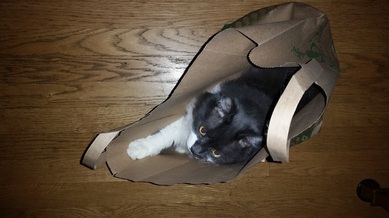 My cat, hiding from me. My cat, hiding from me. I got home at 6:30pm, after a long day of work. Angry. Hungry angry. Hangry. Even my cat was avoiding me. I went straight to the peanut butter jar, dug out the chocolate chips and went to town with my favorite sugar + fat snack. There was no way I could wait to make dinner. I needed a fix. It's hard to be graceful eating peanut butter out of the jar. I'm human, I fully admit it. My eating habits had a long way to go when I first started University, starry-eyed and bound for medical school. Over the first two years, I gained 15 lbs, started losing handfuls of hair, got easily overwhelmed and developed terrible sleeping habits. It was a rough go. By the time I started my Naturopathic medical training at the Canadian College of Naturopathic Medicine I had started making some very significant changes to diet. The biggest changes were cutting out processed crap (like the yellow powdered chicken broth that was previously a staple in my cooking), limiting wheat and increasing fat in my diet. Two years ago, however, I really hit the nail on the head. A colleague of mine, Dr. Erica Robinson, had been a big proponent of the Paleolithic Diet for quite sometime and it got me thinking. The Paleo Diet The Paleolithic Diet is based whole foods - lot of vegetables, a modest amount of fruit, lots of healthy fats and high quality protein - and is meant to simulate the way our ancient human ancestors during the Paleolithic era might have ate. At the same time, this style of eating limits ALL grains, beans and legumes, dairy, sugars, processed foods and alcohol. I know, it does sound drastic at first. Why would you do this to yourself??? We, as a species, have evolved over several hundred thousand years eating a certain way - foraging lots of greens, fruits, edible tubers, nuts and seeds, and when we could find it, meat including the higher fat organ meats. We moved a lot more, slept when the sun went down and had a heck of a lot more downtime to rest and play than we do today. It wasn't until the Neolithic era when agriculture really caught on that we started to settle down and dramatically increased the amount of grains and legumes in our diet. We stayed in one place, had a steady diet of grains, legumes and beans in addition to what those ancient ancestors ate. We had food security. Yes, that did happen thousands of years ago, however even that amount of time is only a small blip compared to the many years of eating in the hunter-gatherer style. The argument is that we are genetically evolved to be eating in this ancient, Paleolithic style, and our genetics are still playing a losing game of catch-up to our agriculture loving ancestor's grain and bean-based diet. Our DNA has no hope in hell to catch up with our modern diet full of genetically engineered wheat, corn, soy, processed fats, sodium, alcohol, antibiotic-laden dairy and other "food products". The Standard American Diet (SAD, for short) is forcing us to fight a bloody, uphill battle against our genetics... and it is one that we can't win. Numerous scientific studies have detailed that the SAD diet full of convenience but absolutely lacking nourishment are direct contributors to heart disease, diabetes, strokes, obesity and cancers amoung MANY other concerns. Yep, these are our biggest killers and we keep getting sicker, fatter, tired, depressed and miserable. So what did this peanut butter-loving Naturopath (to be) do? I read a LOT of books, including these: The Primal Blueprint: Reprogram Your Genes for Effortless Weight Loss, Vibrant Health, and Boundless Energy by Mark Sisson Paleoista: Gain Energy, Get Lean, and Feel Fabulous With the Diet You Were Born to Eat by Nell Stephenson The Paleo Solution: The Original Human Diet by Robb Wolf Practical Paleo by Diane Sanfilippo Make It Paleo: Over 200 Grain Free Recipes for Any Occasion - Bill Staley and Hayley Mason Well Fed: Paleo Recipes for People Who Love to Eat by Melissa Joulwan Dr. Loren Cordain's work and these blogs: Mark's Daily Apple NomNomPaleo Paleo OMG The Clothes Make the Girl I got rid of the grains, the sugar, beans, cut out dairy and threw out anything my great-great-great (x50) grandmother would not recognize as food. I increased the amount of produce I ate, set a limit of max 2 servings of fruit, dramatically increased the healthy fats, had high quality protein with each meal and got to work cooking. I seriously upped the quality of nutrition in my already "healthy" diet. I began to walk everywhere, made yoga a part of my day and allowed myself time to relax. I lost the 15 pounds of stress fat I put on through university and med school. I completely cured my insomnia. My acne cleared. My periods got more regular. I stopped losing handfuls of hair. I got used to saying "No thank you" to well-meaning friends and relatives offering me foods that made me feel ill. I felt truly empowered, knowing that I choose to take my health in my hands every day, that there are answers and that feeling ill did not have to be a given. And I was a heck of a lot more pleasant to be around. Are you interested? Book your free health consultation with me to start living the healthy life you know you deserve. “The food you eat can be either the safest and most powerful form of medicine or the slowest form of poison.” - Anne Wigmore Anne, you are right. I choose medicine. Awesome, tasty medicine. Check out how we do it! - Dr. Keila (no makeup Sunday) Xo
Food can be the perfect medicine... or the best poison.Our body does the best it can and can only run off the fuel we give it. While most of us try to eat healthily the majority of the time, sometimes the "good" foods we are regularly recommended can make us feel ill. If we are taking in foods that don't agree with us, regardless of which Food Guide or expert recommends them, our body will mount a reaction in order to tell us that we shouldn't eat it. If we continue to consume these foods, the body turns up the dial until we have to listen. Your Cheat Sheet to Food Reactions:
Timing is everythingOne reason it can be so difficult to identify a food reaction is that we may react hours, days or even weeks after ingesting the food in question. If you tend to eat a highly varied diet or eat the same foods over and over, pin-pointing that one meal can be a challenge, particularly if you started to feel crummy a few days later. Trust your gut..but look for other clues.The gut is the gateway to the rest of the body. If a food reacts in our gut, it impacts not only our digestive function, but the rest of our body as well. In particular, the immune system, neurological and reproductive systems get involved. Symptoms of a food sensitivity can include:
Your symptoms may evolve over time as well. For example, I notice with myself that when I eat gluten I start to feel very sleepy and have an immediate-onset brain fog. If I continue to ignore my body and eat more - I am the first to admit I am very human and not immune to a fresh slice of bread from time to time - I get some pretty intense stomach cramps and constipation. Since I so seldom eat it, I notice this right away. When I was in university on a tight student's budget, I tended to a lot of pasta (it was cheap, quick and filling) I suffered from debilitating sleep attacks plus all those digestive symptoms, weight gain around the middle and acne. Eventually I realized from trial and error that it was worth spending a few extra bucks, saving the gluten/starch binges for a very occasional treat in order to be more productive, focused, energetic and healthy. As you can see, it certainly goes beyond the digestive system! So how do I know if there's a problem... and what can I do about it?If you're asking yourself this, you've come to the right place!
Working with your family doctor or allergist, standard allergy testing is often recommended to test for IgE-type reactions. Treatment then involves taking an antihistamine (Reactine, Benedryl etc.), epinephrine (eg. carrying an Epi-pen) and/or complete avoidance. However, by now you will realize that IgE reactions are just a small part of the picture. Here is how I treat food reactions:
If you or someone you know is suspects that a food reaction might be contributing to feeling unwell, I would like to offer you a complimentary 15 minute consultation with me to discuss your concerns. 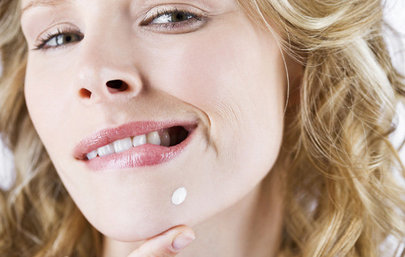 http://vipmobiledayspa.wordpress.com/2013/06/28/super-foods-that-fight-acne/ http://vipmobiledayspa.wordpress.com/2013/06/28/super-foods-that-fight-acne/ Ugh. 7 am. There's a bright red, angry monster that somehow took up residence on your chin overnight and is now staring back at you in the mirror. The beast hurts when you touch it. It is also probably giving you the stink-eye, just in time for your incredibly important interview. I've been there too. As a teen I had acne so bad it covered my face, chest and back. I went through years of antibiotic creams, washes, birth control pills that I never wanted, and Proactive facial care systems that stained all of my mother's towels. I was even on Accutane for two years. A high dose pharmaceutical variation on Vitamin A, Isotretinoin or Accutane, is commonly prescribed for severe cystic acne. While it is known teratogen (meaning that it is known to cause severe birth defects), a less common side effect of the drug is anxiety, depression and even suicidality. Fun times for me, when both me and my high school boyfriend were taking long courses of Accutane. It worked, however it was a pretty dark time and I'm lucky my family was so patient with me. It has since been taken off the market in Canada due to a possible link between use and Inflammatory Bowel Disease. Yikes! Acne vulgaris (the medical, even uglier sounding term) can be caused by a number of concerns, including: Hormonal imbalances - excess testosterone, or excess estrogen, PCOS, puberty, pregnancy/post-partum, menopause hormonal changes Food sensitivities - dairy, gluten, eggs are the most common although there are many other possible culprits, sugar, preservatives Digestive Weakness - low stomach acidity, excess protein (often from conventionally raised animals whose meat is pro-inflammatory and hormone-laden), poor gut flora, recent antibiotic use Medications - corticosteroids, oral contraceptives, anabolic steroids Allergies - cosmetics, chemicals, fragrances, clothing material, detergent Stress - lack of sleep, stress hormones in overdrive, less-than-scrupulous (or overly vigorous) hygiene But I'm not a teenager anymore! While it can be pretty devastating dealing with acne as a teen, most of us grow out of it. However, some people have acne lasting well into their 30's and 40's. Many others are suddenly faced with some angry crops of acne as adults. Several women I see with adult acne struggle to be taken seriously in their professional lives while feeling that that they look like a kid. Acne is not uncommon in the body-building world either, as anabolic steroids, sweaty work-out cloths and high amounts of whey protein powders can contribute to facial and b-acne. In these cases, look to food sensitivities and other environmental factors. Another form of adult acne, Rosaceae, is often related to low stomach acid or or food sensitivities. So what can I do for my adult acne? 1. Ditch the chemical laden products - Check out EWG's Skin Deep Cosmetic Database to determine if your cosmetics and personal care products could be contributing to your symptoms. Pay particular to expensive high-end brands - many of them have some particularly nasty ingredients. 2. Switch to raw honey as a facial cleanser. Full of good bacteria, honey acts as a skin normalizer for both oily and dry skin and promotes healing. 3. a) Limit sugar, dairy and processed foods. Low glycemic diet and acne (American Journal of Clinical Nutrition, 2007), Acne: the role of medical nutrition therapy (Journal of the Academy of Nutrition and Dietetics, 2013) b) Clean up your diet. Focus on lots of orange and yellow fruits and vegetables like carrots, winter squash, and pumpkin as they contain beta-carotene to help improve skin health. Leafy greens such as dandelion, beet greens, spinach, kale, chard, water cress, blue-green algae (spirulina, seaweeds) tonify the liver to help balance hormones. Mung beans, adzuki beans, unpeeled cucumber slices, alfalfa and soy sprouts are all used in Traditional Chinese Medicine for the treatment of acne as well. 4. Drink lots of water and green tea. Your kidneys and liver filter toxins out of your body - staying well hydrated assists this function. 5. Adopt a regular stress management practice. Acne is associated with lower self-esteem, higher and rates of depression - Understanding the burden of adult female acne (Journal of Aesthetic and Clinical Dermatology, 2014). Yoga, deep breathing, and exercise can be helpful for confidence breathing, handling stress and improving your quality of life. Check out Jean's story... this is a great example of how naturopathic medicine can help treat adult acne with amazing results! Naturopathic approaches to acne involve removing food sensitivities, creating a tailored supplement protocol, stress management exercises and hormonal support as needed to help resolve current acne, minimize scarring and reduce the occurrence of future outbreaks. If you are struggling with acne - whether you are a teen or a grandmother or anywhere in between - let's set up a time to chat. Here's to your clear skin! Dr. Keila 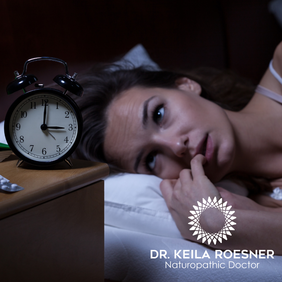
It was 2 pm and I was sitting in my first year physiology class at the Canadian College of Naturopathic Medicine.
I knew that it was important to stay awake but the more I tried to focus on my professor's words, I Just. Kept. Falling. Asleep. It felt so good, telling myself that I would just rest my eyes while listening to how the kidneys are supposed to work. Unfortunately I would wake with a gasp about every two minutes. I always blew my cover. I had told myself that I was just tired, that I didn't need to see anyone. I knew I didn't want the zombie pills that many of my family members were taking, you know, being a first year Naturopathic student and all. I needed help. That was the first time that I consulted a Naturopathic Doctor. Insomnia is one of the most common reasons for people to seek health care. Indeed, the vast majority of the patients I see have some sleep issues and are sometimes surprised to be told that they have insomnia. People with insomnia often have difficulty either falling or staying asleep, wake up too early and may feel un-refreshed in the morning. Insomniacs are also more likely to develop depression, anxiety, high blood pressure, heart disease, insulin resistance, diabetes, be overweight or obese, report substance abuse, have poorer cognitive performance and memory and take sick days from work. In other words, many of us are not sleeping and it is a problem. So what did I do? I learned the hard way. I know what it is like trying to function when you need to be at your best...and failing. I also learned that a few simple hacks can make all the difference. The Essentials for Good Sleep and Preventing Insomnia, Naturally:
If after implementing all of these measures consistently you are still having trouble sleeping, know that there are many options to help support you. As a Naturopathic Doctor, my role is to help identify the factors that may be contributing to your poor sleep, and helping you to create a treatment plan that is tailored to suit your lifestyle. I use a combination of therapies with great success to get my patients sleeping well. If you are interested in how I can help you, you are welcome to book a Health Discovery Session with me. I have helped many people, just like you, to get a good night's rest naturally. And me? I sleep like a baby now. |
Top 75 Naturopath Blogs & Websites For Naturopathic DoctorsAuthorDr. Keila Roesner is a Naturopathic Doctor. When not treating patients she is also an enthusiastic barefoot-strolling, music-loving, yoga-doing kitchen wiz - who also happens to be a wrestling fan. Categories
All
|
Let us take you from hormonal to whole.
|
Dr. Keila Roesner, BHSc ND
Naturopathic Doctor, Hormone Warrior and Your Wellness Cheerleader 247 Church Street, Stratford ON N5A 2R7 (519) 273-0900 drkeila@roesnerwellnesssolutions.com |
|



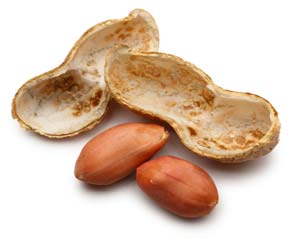

 RSS Feed
RSS Feed